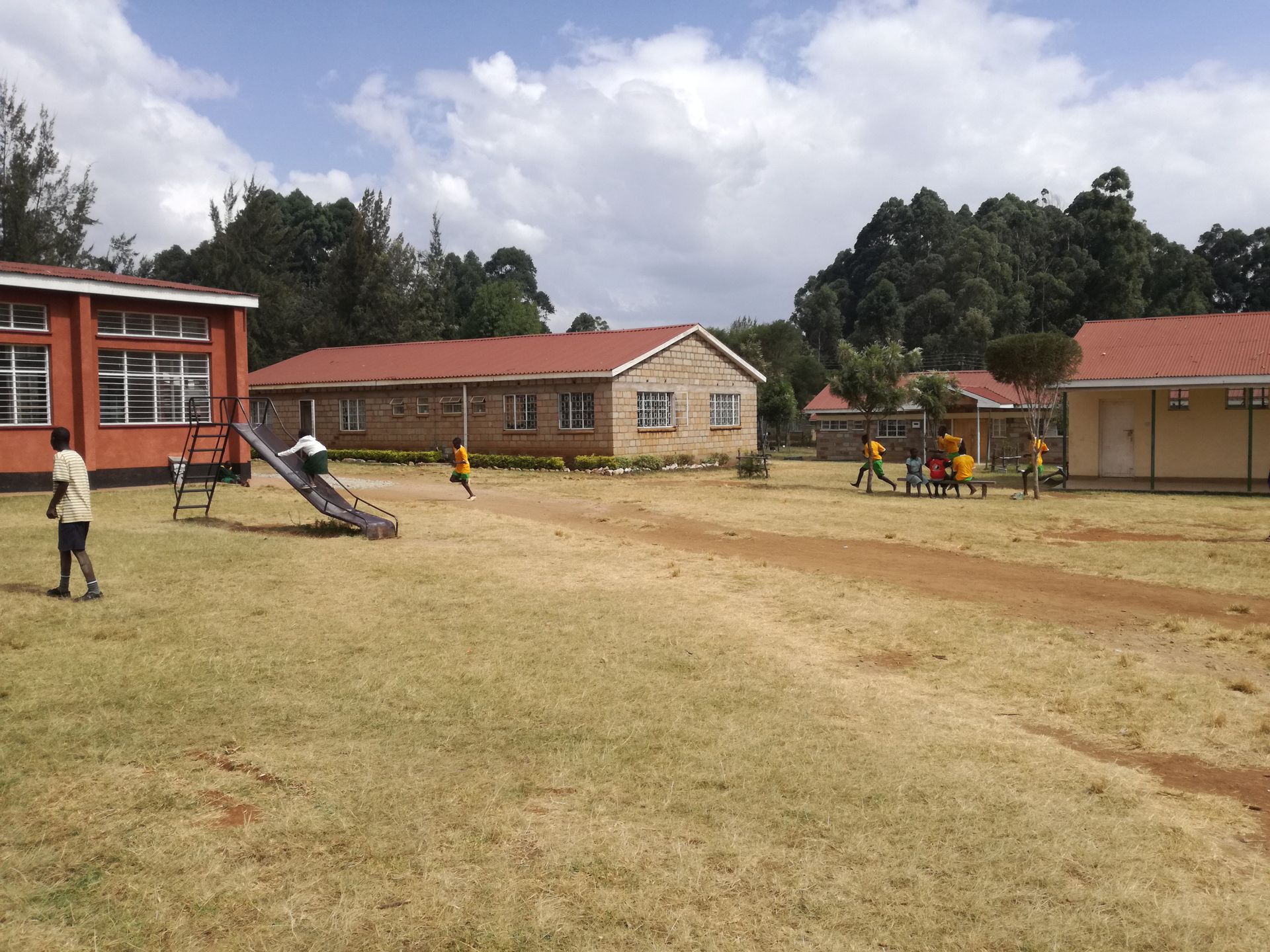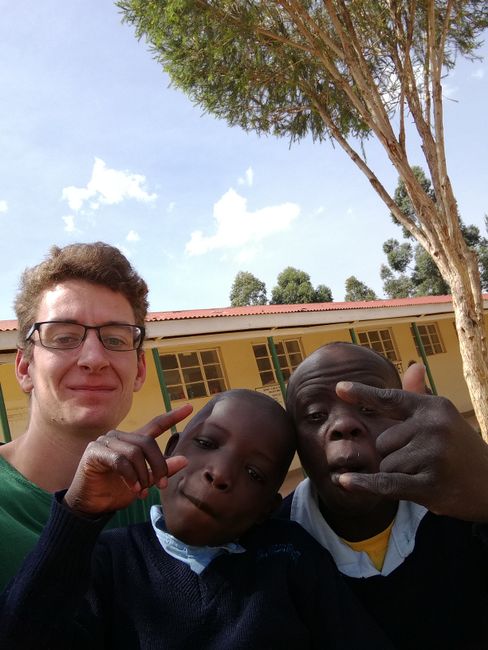School routine
Buga: 04.02.2018
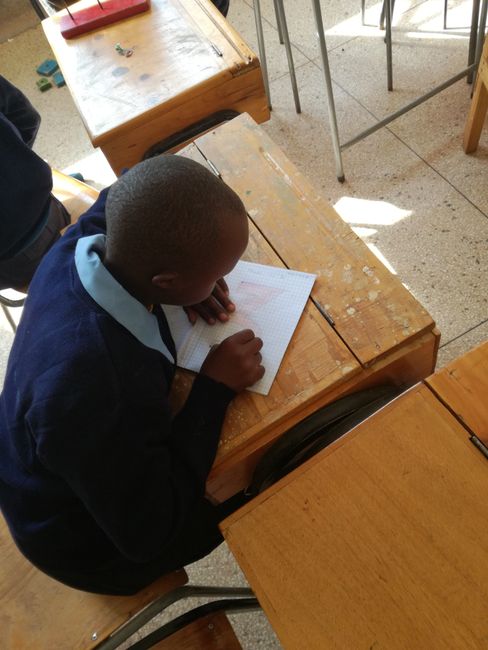
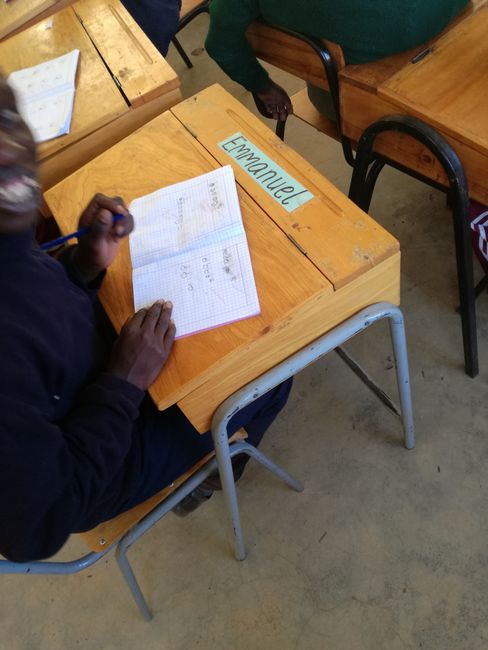
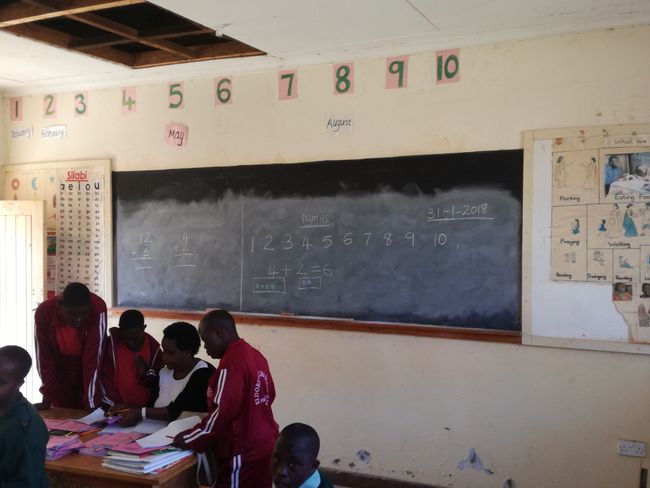
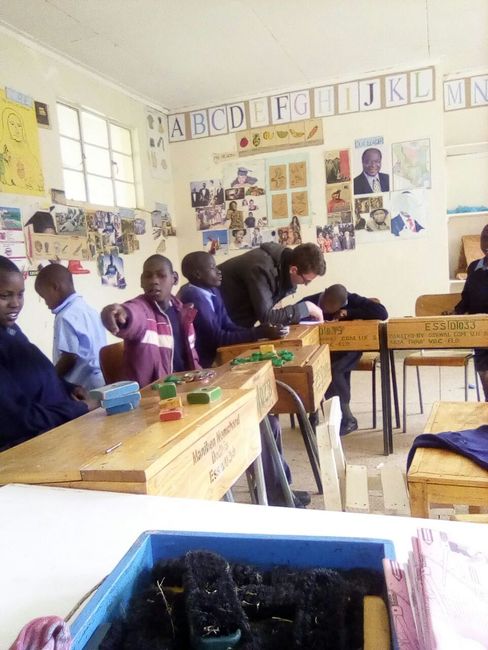
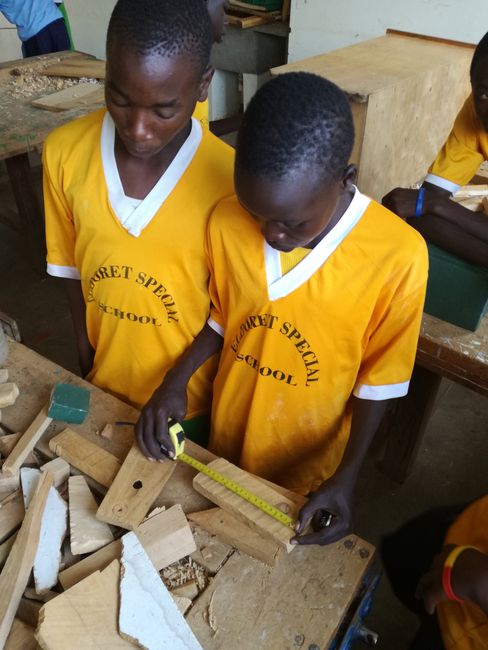
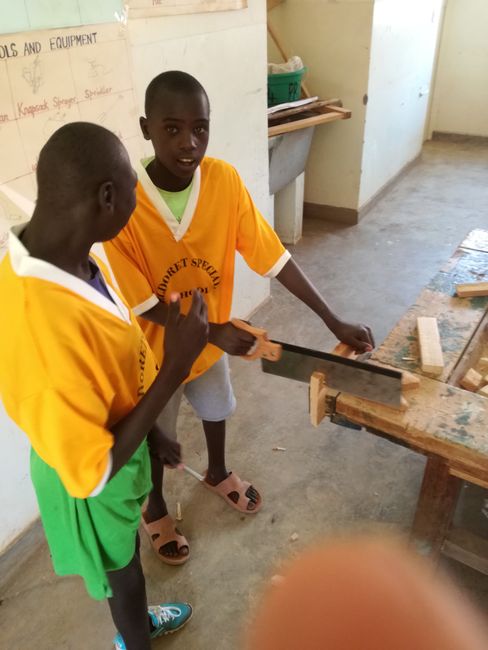
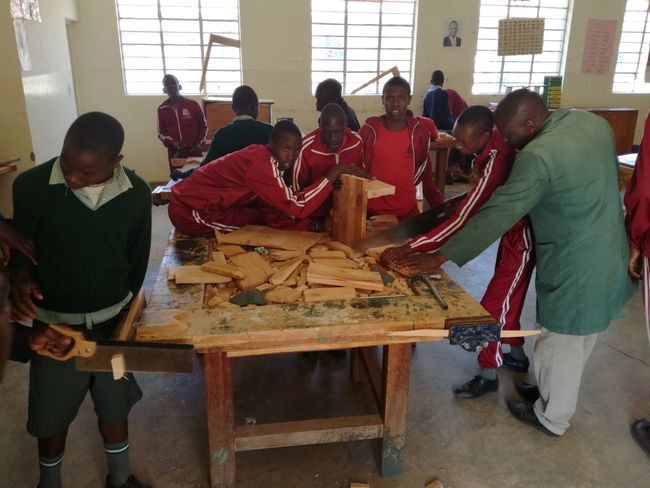
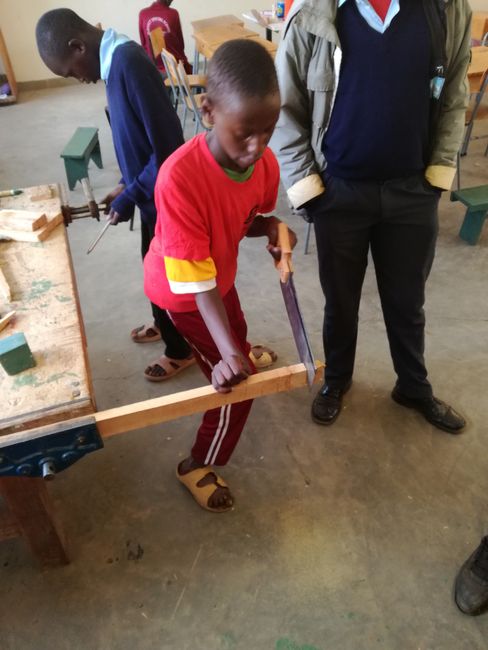


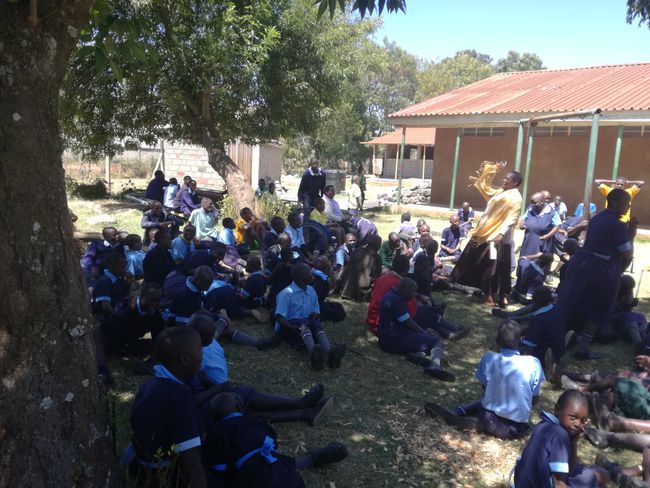
Biyan kuɗi zuwa Newsletter
Hello everyone,
today I would like to share some impressions from the past school week:
After the first week mainly consisted of observing and helped me to get oriented, I became more active in this week. I was in a different class every day, which allowed me to better understand the students' lessons. At the beginning of the week, I went to one of the two pre-vocational classes. Here, the oldest and most advanced students are taught. The teaching here is somewhat reminiscent of German schools. They teach math, Kiswahili, and English. In addition, there are also 'social studies' and 'communication skills'. What pleased me a lot was the use of tablets. The children seemed very interested and all of them gladly participated. In my opinion, the teacher also uses this teaching method very well. Additionally, the children are very capable of using the tablets themselves, which not only promotes media literacy but also independence. In math, the teacher tries to differentiate and give each child their own tasks. Some students calculate in the 20s number range, while others can already do simple multiplications. I was immediately given the task to go around in both the math and Kiswahili lessons with a pen and check or offer my help if needed.
In English, the subject of the lesson was the alphabet. It was practiced together in frontal teaching and then individually on the tablets.
In a conversation with the teacher, it emerged that the development level of each child is recorded. The strengths and areas for development are also noted, so that each child has a kind of individual developmental plan. I was very pleased to hear this because it allows for the best possible care for each child as an individual.
In the intermediate and foundation classes that I visited in the next two days, I couldn't always have such good experiences. Here as well, I was allowed to help in math class. In both grades, there is still more emphasis on individual digits than on numbers. The only differentiation I could find was that students who finish faster already receive additional tasks. However, there are also a few students in the intermediate classes who are already dealing with simple additions without carrying over. Unfortunately, I also noticed in both grades that the children had a lot, sometimes even too much, downtime and didn't know what to do with themselves. In these moments, I personally missed the impulse from the respective teacher. I believe that there is also a problem that the two lower grades have less working material than the pre-vocational class. In the foundation class that I visited, the children were given building blocks and other objects after the first shorter break, which they should use to create numbers or shapes. Many children preferred to play with the objects, but they were able to discover them this way. However, this phase was too long for me. In contrast to the pre-vocational class, I sometimes missed a clearer structure. However, it was very nice to see it in other places. The first two periods were well organized and separated. I also liked the morning greeting ritual a lot.
Overall, I also liked the lessons in the two lower grades.
In the autistic class that I visited, the teaching was completely different. Here, too, we started with math and the children were supposed to color in numbers. But here as well, there was too much downtime for me. After the first break, blocks were also handed out for the children to play with and arrange into certain shapes. However, after a certain time, this part was replaced by the task of separating dried red beans from corn kernels. I found this task very nice because it teaches the children to differentiate and allocate. So far so good. However, in the autistic classes, it is very noticeable that the teachers do not know enough about autism. Some areas lack specific support. Especially with non-verbal children, the teachers are sometimes overwhelmed and do not know exactly what tasks they can give them. So, unfortunately, there are a few children who just sit there all the time and do nothing. However, I also observed this phenomenon in other non-autistic classes.
In a conversation with a teacher, this perceived overwhelm became clear. She told me that the teachers learn something new from the autistics every day and they do not know enough about autism. I myself am far from being an expert when it comes to autism, but I still have to say that unfortunately the school lacks the possibilities for better support. Communication boards or similar tools for alternative communication would probably already help these students a lot.
In both the autistic classes and the first two grades, ADL, which I already reported on, is on the timetable after the tea break. Here, the students are taught practical life skills that they need to take care of themselves. I find this unit of instruction very meaningful. They learn to wash their hands, polish their shoes, wash clothes, wash their faces, and much more.
After lunch, the younger students have free time, while the older ones go to the wood workshop or home science. In the wood workshop, after becoming acquainted with all the tools, the students realize their own projects. Unfortunately, there are too few tools, so the children have to take turns regularly. However, this works quite well.
In home science, which is mainly attended by girls, the children learn things like carpet knotting, making bead necklaces, or embroidery and knitting. I also tried making a necklace myself. According to the teacher, it looked very nice.
Twice a week, some children also go to the field where various crops are planted. Here, they learn about the work of a farmer, which is a very important skill in Kenya, as there are many farms. After school, the graduates might be able to find work on one of these farms. Accordingly, these lessons are called 'agriculture'.
Overall, up to this point, I have a positive impression of the work that is being done. The best possible use is made of the given opportunities. Even though it is not possible to teach all children, an effort is made to reach the majority.
One more anecdote about Friday: Since the teacher of one pre-vocational class was absent, I was quickly chosen to fill in. Naturally, I appreciate this trust, but I was also a bit unsure because I didn't know what to do with the children. However, it turned out to be unproblematic, as the children were able to give themselves tasks. First, everyone worked with the tablets, and after the break, each child chose math tasks from a book. So, I only had supportive tasks.
Biyan kuɗi zuwa Newsletter
Amsa
